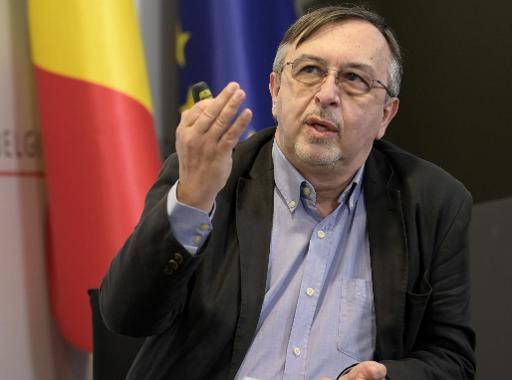Belgium is not experiencing the third wave of coronavirus infections, interfederal Covid-19 spokesperson Yves Van Laethem said following a sudden peak in hospitalisations last Friday.
"This is not a third wave," said Van Laethem during a press conference on Tuesday, adding that worrying signs were still being observed.
While Belgium's figures had been on a plateau for several months, a particularly high peak of 204 new hospitalisations was recorded last Friday, leading the Consultative Committee to postpone any possible relaxations by a week.
However, the latest figures are more reassuring, according to Van Laethem. "Fortunately the figures of the last few days do not show a continuation of this increase in new hospital admissions," he said.
Related News
- Half of new coronavirus infections found in teenagers and their parents
- Belgian hospitals asked to reserve 50% of intensive care beds for Covid-19 patients
- Belgium will not relax any measures yet
Currently, Belgium is "in troubled waters and we do not know when it will get calmer," but there are also glimmers of hope, Van Laethem said.
The hospital admissions remain high but the increase in new cases seems to be slowing down, and the numbers of deaths and hospitalisations reported by residential care centres are falling drastically.
At the end of 2020, 19.2% of hospital patients came from residential care centres, a percentage that has dropped to 5% now. "The decrease is in line with the administering of the first, and especially the second, doses of the vaccine," said Van Laethem.
His Dutch-speaking colleague Steven Van Gucht added that it is "still too early" to talk about a third wave.
"That can still be avoided, I think. But there is a risk that this is the beginning of a wave," Van Gucht said. "You can speak of a wave when it becomes more visible and it is still too early for that. A stabilisation or a decline in the figures is still possible."
It is still possible to reverse this upwards trend by limiting close contacts as much as possible, and continue to respect the basic measures. "That offers the best prospects for easing in April and May," he added.
Maïthé Chini
The Brussels Times

